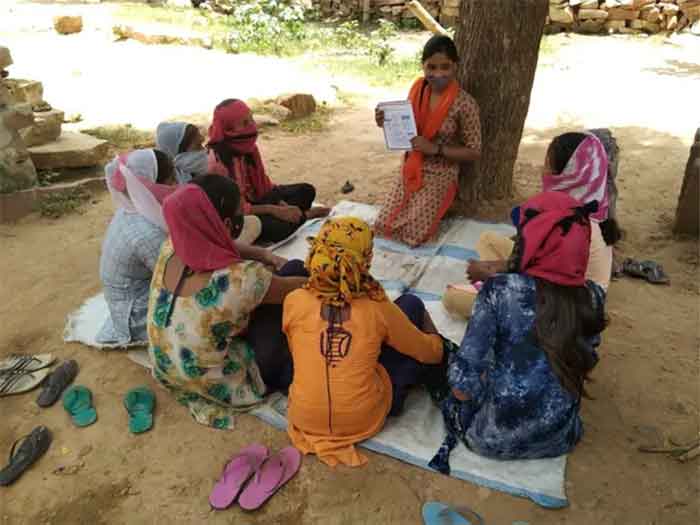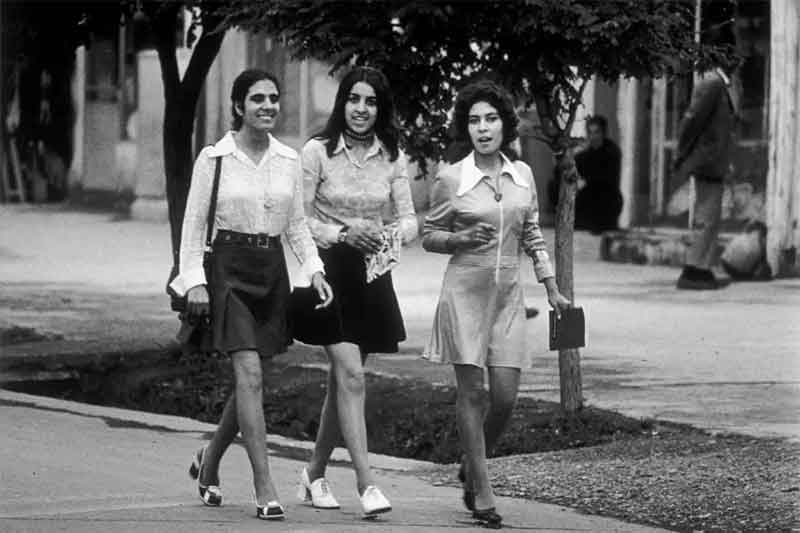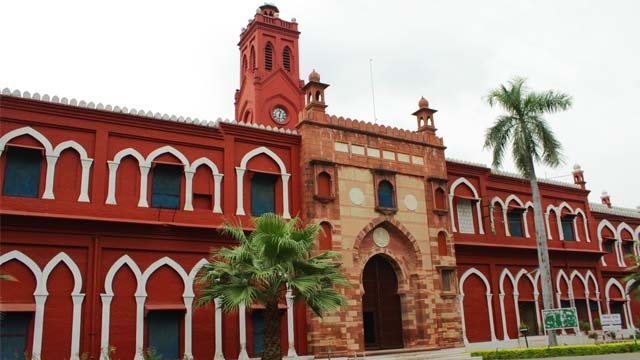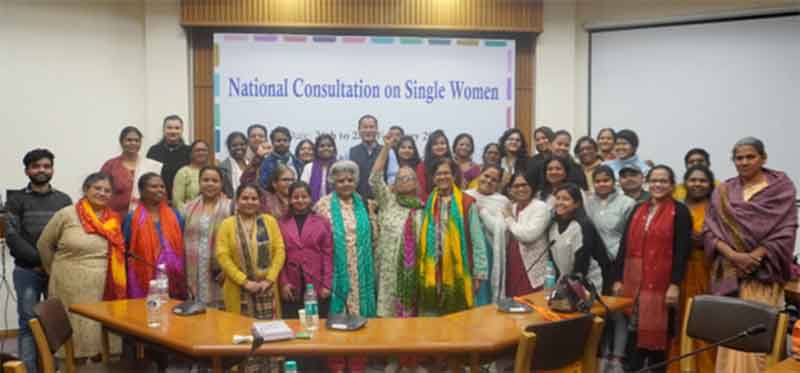by Neha Saigal & Saumya Shrivastava

Earlier this year, on a pleasant afternoon we made our way from the walled and very beautiful city of Jaipur to the narrow and uneven lanes of Karauli district. We were there to meet members of Rajasthan Rising, a relatively young movement led by girls, between the ages of 14-24 years, belonging to Bahujan communities of rural Rajasthan. We were not prepared for what we witnessed that day as we expected yet another girls’ collective which came together with support from civil society organizations but failed to put the needs, aspirations, and voices of the girls first.
We were greeted with a loud and jubilant “Jai Bhim, Johar and Zindabad”, all expressions of collectives and groups, our society has structurally marginalized. As we took our place on the mattresses neatly arranged on the floor, Priyanka, a core member of the group, narrated the journey of a movement that was born out of sheer courage of girls who were doubly disadvantaged because of their gender and caste. Their demands were simple to be treated as equals and access to opportunities to finish their education. Priyanka belongs to a Dalit community and her story gives hope to several girls for their future, she fought against a system, whose only expectation from her was that she cleans the homes of the privileged just like her mother did. Inspired by Babasaheb Ambedkar’s “Be Educated, Be Organised and Be Agitated”, Priyanka not only fought for her right to a higher education but is one of the chief architects of Rajasthan Rising.
Saira Banu, a core member of Rajasthan Rising, recounted her journey of joining the collective. She was engaged to be married during the lockdown, fate of many young girls in the State, prompted by the economic hardships of the Covid 19 pandemic. She tells us that a community meeting was organized by the girl leaders of Rajasthan Rising in her village, in an effort to raise awareness on equitable education and engage more girls to become members of the platform. Initially hesitant, Saira attended the meeting and what followed changed her life in many ways. Not only is she a leader in the movement, she also convinced her parents to not coerce her into a marriage she was too young for and today Saira is an advocate for every girl in Rajasthan to study the minimum, till 12th grade.
So, what stirred the revolution in this ordinary district and made it an extraordinary story in Rajasthan to inspire several future generations?
Last year, the Covid 19 pandemic had caused severe distress among those vulnerable, especially young girls with no access to schools or online learning. As per a study by Development Solutions and IDS Jaipur last year, only 11% girls could access online classes during the Covid lockdown in Rajasthan. Ten young girls from the most marginalized households of Sapotara block in Karauli district took a very courageous decision, to start a collective of girls that would be a support system for each other during these challenging times. Their purpose, to increase awareness among their community on the wrongs of rampant discrimination and amplify the demand of access to free and equitable education for every girl in the State. Mentored by local NGO AMIED and other experts, the girls built their movement from ten to now thousands of girls, using principles of the leadership practice developed by Dr Marshall Ganz and colleagues, also taught as the programme, Leadership, Organising and Action at the Harvard Kennedy School. The first ten girls, built leadership of a hundred girls, each girl taking responsibility of ten more. As Vineeta, an Adivasi, and member of Rajasthan Rising told us that in their leadership meetings, they shared stories of struggle and hope, agreed on shared goals and planned activities to increase awareness and mobilise more girls. Very often, they had to make visits to the home of their friends, to engage with families and convince them of their cause. This leadership model helped them grow quickly and have a positive impact on their lives, in an extremely patriarchal and feudal society.
Rajasthan has one of the lowest rates of literacy for women in India, as per the NSSO 2017-18 report, and only 25% females in age group 15-49 years have completed 10 or more years of schooling (as per NFHS-4). In fact, the data by Ministry of Human Resource Development shows that the gender and caste differentials in accessing education become starker with the progression in levels of education. For example, in 2015-16, the Gross Enrolment Ratio (GER) at senior secondary level for boys from All Groups was 66%, compared to 52% for girls from All Groups, 46% for SC girls and 49% ST girls, with higher rates of dropout among the girls from disadvantaged groups. The last few years have also seen a marked increase in violence against Dalit women and girls. A report by All India Dalit Mahila Adhikaar Manch highlighting, atrocities against Dalit women and girls have increased by 46% in the last six years (between 2014 and 2019) as per the NCRB data. Rajasthan registered third highest number of cases against Dalits during the period under the SC and ST Prevention of Atrocities Act, among all states in India.
Today, Rajasthan Rising is a movement of over thousand girls and is gradually growing in districts beyond Karauli with the support of several mentors. The girls have also initiated a safe digital platform, where girls across Rajasthan meet once a month, learn and discuss areas of interest in an attempt to bridge the learning deficit they are faced with, as schools have been closed for over a year now. Their journey has been nothing short of inspiring, as Monica mentioned, a year back she and her friends were unable to step out and speak their minds but today they feel extremely empowered to approach village elders, including the Sarpanch to talk about their right to education, safe menstruation, provision of electricity in Anganwadi centers and many such issues that affect their daily lives. The girl leaders have met with their local MLA in Karauli and tabled their demands of free and equitable education. Similarly, they met with the State Minister of Education, Shri Govind Singh Dotasara and State Minister of Labour, Shri Tikaram Jully. The local administration and political leadership have shown support and appreciation towards Rajasthan Rising, citing on several occasions that girls’ education is a priority for the State.
Despite the success, girl leaders are well aware that the road ahead will be long and arduous as they work hard to shift deep rooted social norms. But it does not deter them from their cause, as Sunita puts it “we know that changing mindsets on discrimination based on gender and caste will take years, but we want to start today as the next generation will benefit from our work.” From an outsider’s perspective one of the most fascinating aspects of Rajasthan Rising is a leadership practice developed in the West is implemented by girls in rural Rajasthan, challenging patriarchy and demanding their right to education, granted to them by the Indian Constitution.
Neha Saigal works on intersectional issues of gender equality, health and climate justice and is a mentor to Rajasthan Rising.
Saumya Shrivastava is a researcher and policy expert with IPE Global working on issues of social inclusion and equity.
















































